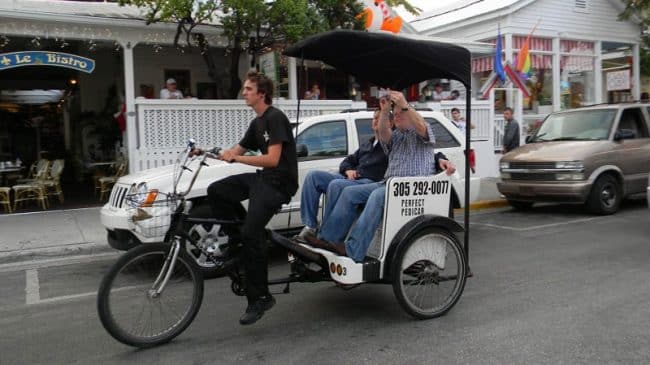The governmental practice of occupational licensing costs consumers and job seekers dearly. Economists have consistently found detrimental effects associated with licensing occupations that set one-size-fits-all rules. Occupational licensing occurs when consumers can only acquire services from someone who has been approved by a governmental agency. Studies have shown that regulatory hurdles limit the supply of practitioners in a field, particularly among low-skill workers.
Fewer suppliers of services drive up costs and reduce choices for consumers. In the case of taxicabs, limits on the number of drivers have been written into the law as limits on the number of vehicles each company can use.
In one prominent study, Morris M. Kleiner and Alan B. Krueger, former Chairman of President Obama’s Council of Economic Advisers, found that occupational licensing inhibits competition among practitioners. This raises wages for upper-middle class workers. Another study by Economist David Skarbek sums up the research findings more directly: “The dominant position in economics is that licensing restricts supply, increases prices, and transfers wealth from consumers to producers.” Despite these findings, governmental licensing is set to expand to ridesharing services.
Last weekend the ridesharing service uberX launched in two previously untapped markets, Las Vegas and Philadelphia. In Philadelphia, the Philadelphia Parking Authority conducted sting operations on uberX drivers. The local authorities impounded thier vehicles. Owners will have to pay over a thousand dollars to get their vehicles back from the government.
The sting operations in Las Vegas were more extreme. Officers sporting black ski masks reportedly treated one Uber driver as a suspected criminal, ordering him to get out his car and asking him if he had any drugs. Not only is this humiliating but drivers in Las Vegas could be charged up to ten thousand dollars in fines for giving people a lift. In both Philadelphia and Las Vegas, the local authorities detained drivers because they did not have special government-granted licenses.
In March, Seattle approved rules that limited the number of rideshare vehicles for each company to 150. Although the limit has now been overturned, occupational licensing schemes are prone to limiting the supply of workers.
The primary reason for rideshare drivers to be licensed by the government is to ensure safety. In fact, the same call has been made to license other occupations. The argument is that there is an asymmetry of information between rider and driver. Namely, a rider does not know about the safety qualities of the service he is about to pay for. In a similar vein, a recent Forbes article lamented on how straightforward it is to become a driver for Uber and clamored for more government involvement. The point of ridesharing is to get a steady stream of drivers out on the road without slowing down the process with unnecessary regulatory red tape.
Uber already takes safety precautions, including $1 million insurance policies for each driver, driver background checks and a customer feedback system that locks-out bad drivers. If something really goes wrong, Uber’s mobile app tracks where a passenger gets picked up, where a passenger is located during the trip and the passenger’s destination. Compare this with a cab company in the District of Columbia where riders are fortunate to be able to use a credit card instead of cash, much less track their route.
Regulators should keep the outcome of occupational licensing in mind when they’re crafting rideshare rules. Ridesharing companies provide checks on their services’ safety. The classic asymmetrical information argument doesn’t apply to ridesharing due to insurance coverage and customer feedback mechanisms. The empty gesture of licensing rideshare drivers is not worth the consequences: restricted mobility and job opportunities for Urbanites.

